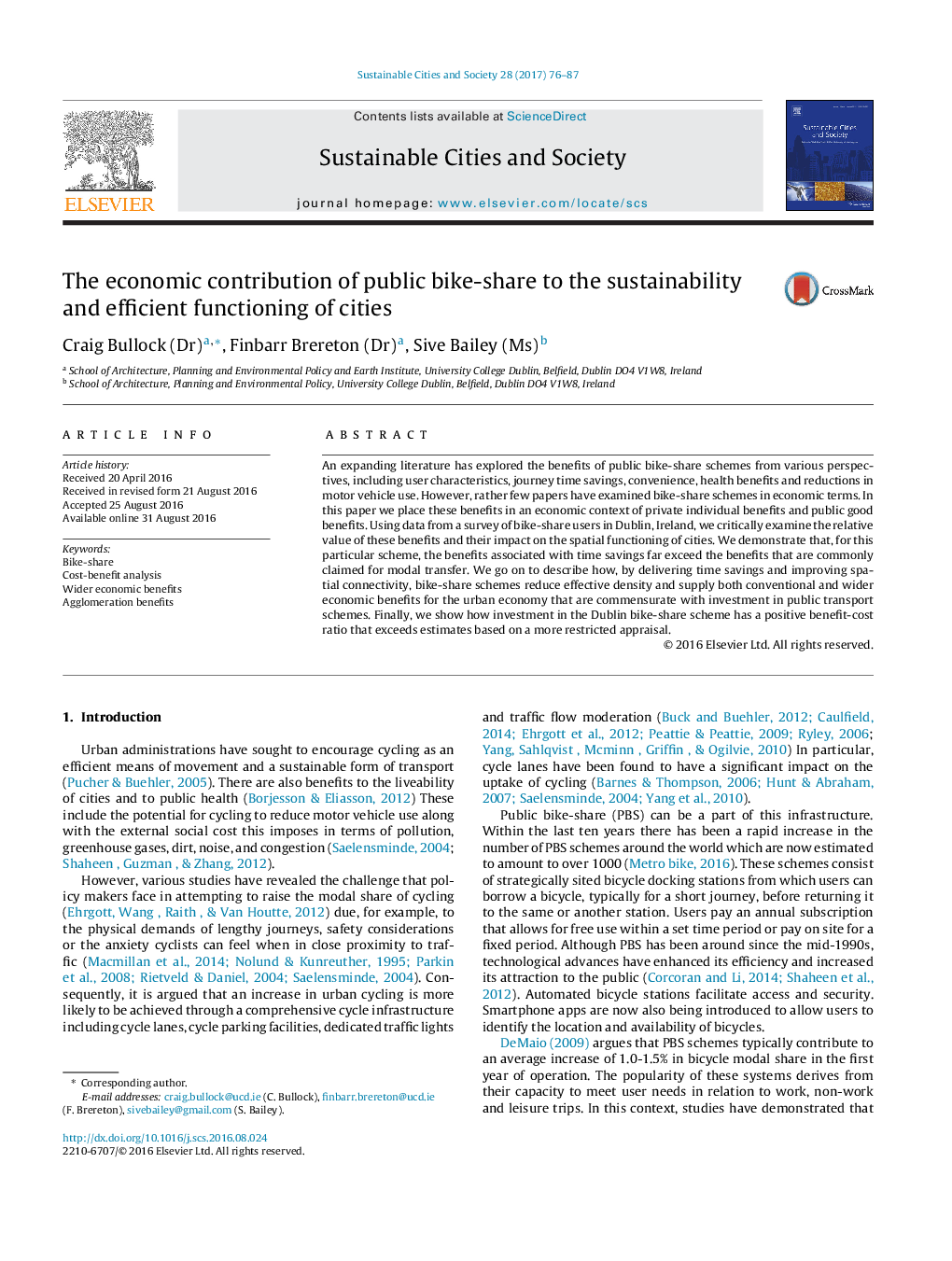| Article ID | Journal | Published Year | Pages | File Type |
|---|---|---|---|---|
| 4928218 | Sustainable Cities and Society | 2017 | 12 Pages |
â¢The paper examines the costs, private and public benefits of bike-share schemes.â¢The most significant conventional benefit is journey time savings.â¢Wider economic benefits are a significant and often overlooked benefit of bike-share.â¢Time benefits, wider economic benefits and health benefits contribute to a combined benefit-cost ratio of 12.3:1.
An expanding literature has explored the benefits of public bike-share schemes from various perspectives, including user characteristics, journey time savings, convenience, health benefits and reductions in motor vehicle use. However, rather few papers have examined bike-share schemes in economic terms. In this paper we place these benefits in an economic context of private individual benefits and public good benefits. Using data from a survey of bike-share users in Dublin, Ireland, we critically examine the relative value of these benefits and their impact on the spatial functioning of cities. We demonstrate that, for this particular scheme, the benefits associated with time savings far exceed the benefits that are commonly claimed for modal transfer. We go on to describe how, by delivering time savings and improving spatial connectivity, bike-share schemes reduce effective density and supply both conventional and wider economic benefits for the urban economy that are commensurate with investment in public transport schemes. Finally, we show how investment in the Dublin bike-share scheme has a positive benefit-cost ratio that exceeds estimates based on a more restricted appraisal.
